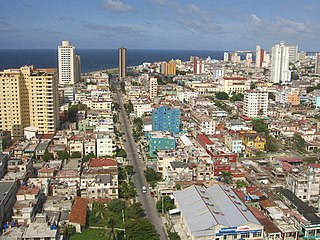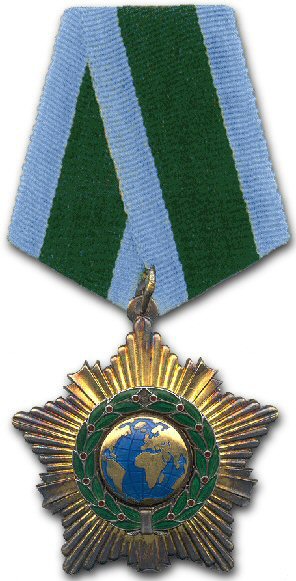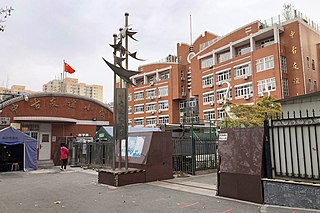
Cuba's foreign policy has been fluid throughout history depending on world events and other variables, including relations with the United States. Without massive Soviet subsidies and its primary trading partner, Cuba became increasingly isolated in the late 1980s and early 1990s after the fall of the USSR and the end of the Cold War, but Cuba opened up more with the rest of the world again starting in the late 1990s when they have since entered bilateral co-operation with several South American countries, most notably Venezuela and Bolivia beginning in the late 1990s, especially after the Venezuela election of Hugo Chávez in 1999, who became a staunch ally of Castro's Cuba. The United States used to stick to a policy of isolating Cuba until December 2014, when Barack Obama announced a new policy of diplomatic and economic engagement. The European Union accuses Cuba of "continuing flagrant violation of human rights and fundamental freedoms". Cuba has developed a growing relationship with the People's Republic of China and Russia. Cuba provided civilian assistance workers – principally medical – to more than 20 countries. More than one million exiles have escaped to foreign countries. Cuba's present foreign minister is Bruno Rodríguez Parrilla.

Havana is the capital and largest city of Cuba. The heart of the La Habana Province, Havana is the country's main port and commercial center. It is the most populous city, the largest by area, and the second largest metropolitan area in the Caribbean region. The population in 2012 was 2,154,454 inhabitants, and its area is 728.26 km2 (281.18 sq mi) for the capital city side and 8,475.57 km2 for the metropolitan zone.

The Venceremos Brigade is an international organization founded in 1969 by members of the Students for a Democratic Society (SDS) and officials of the Republic of Cuba. It was formed as a coalition of young people to show solidarity with the Cuban Revolution by working side by side with Cuban workers, challenging U.S. policies towards Cuba, including the United States embargo against Cuba. The yearly brigade trips, which as of 2010 have brought more than 9,000 people to Cuba, continue today and are coordinated with the Pastors For Peace Friendship Caravans to Cuba. The 48th Brigade travelled to Cuba in July 2017.

Danny Glover is an American actor, producer, and political activist. Over his career he has received numerous accolades including the Jean Hersholt Humanitarian Award from the Academy of Motion Picture Arts and Sciences, the NAACP's President's Award, as well as nominations for five Emmy Awards and four Grammy Awards.

Radio Havana Cuba is the official government-run international broadcasting station of Cuba. It can be heard in many parts of the world, including the United States, on shortwave frequencies. Radio Havana Cuba, along with Radio Rebelde, Cubavision Television, and other Cuban radio and television, broadcasts to North, Central and South America via free-to-air programming from the Hispasat 30W-6 satellite over the Atlantic Ocean and worldwide via Internet streaming.

Benjamin Arthur Gilman was an American politician and Republican member of the United States House of Representatives from Middletown, New York, from January 3, 1973, to January 3, 2003.

Alan Michael Lapsley, SSM is a South African Anglican priest and social justice activist.
Elijah Haatuakali Kaiba Mudenda was a Zambian politician. He served as the 2nd Prime Minister of Zambia from 27 May 1975 to 20 July 1977.

The Order of Friendship is a state decoration of the Russian Federation established by Boris Yeltsin by presidential decree 442 of 2 March 1994 to reward Russian and foreign nationals whose work, deeds and efforts have been aimed at the betterment of relations with the Russian Federation and its people. The design of order was created by Alexander Zhuk. Its statute was later amended by presidential decree 19 of 6 January 1999, presidential decree 1999 of 7 September 2010, presidential decree 1631 of 16 December 2011, and presidential decree 308 of 16 March 2012. The Order of Friendship is the direct successor of the Soviet Order of Friendship of Peoples and like the latter, its insignia was similarly designed by Alexander Zhuk.

Eusebio Leal Spengler was a Cuban historian. He served as the municipal historian of Havana, as well as the director of the restoration project of Old Havana. Under his oversight, the historic centre of the capital city became a UNESCO World Heritage Site. He also authored books and hosted radio and television programs that recounted the city and its history.

The Voice Project is a 501(c)(3) non-profit advocacy group focused on promoting freedom of artistic expression as an agent of social change. The project was founded in 2009 as a response to the Lord's Resistance Army Insurgency in Northern Uganda, but has since expanded programs into Sudan, the Democratic Republic of the Congo, the Central African Republic, Russia, China, Afghanistan, Cuba, and the United States.

The Cuban Friendship Urn, also known as the Cuban–American Friendship Urn or USS Maine Memorial, is a marble statue in Washington, D.C., listed on the National Register of Historic Places. The monument originally stood in Cuba to honor the American deaths aboard the USS Maine preceding the Spanish–American War in 1898.
Vital Balla is a Congolese politician.
Camerata Romeu is an all-female instrumentalist chamber music group founded and led by Zenaida Castro Romeu, orchestral director and composer from a family of Cuban performers and composers spanning several generations. The orchestra's musical focus is playing European style classical music while drawing on the popular rhythms of Cuba taken from Spanish, African and Latin American Indians.

Cuba–India relations are the bilateral ties between the Republic of Cuba and the Republic of India. The two countries share a warm and close relationship marked by mutual respect, solidarity and cooperation.

The Order of Playa Girón is a national order conferred by the Council of State of Cuba on Cubans or foreigners. It was established in 1961 and is named after the Playa Girón, site of the Cuban victory in the Bay of Pigs Invasion.

North Korea–Venezuela relations are relations between the Democratic People's Republic of Korea and the Bolivarian Republic of Venezuela. Venezuela is one of the four countries in Latin America that has an embassy of North Korea along with Brazil, Cuba and Mexico. However, Venezuela is one of the only countries in the world that has a good relationship with both North and South Korea.

Kaveh Nabatian is an Iranian-Canadian musician and film director, known as a trumpeter and keyboardist with the Juno Award winning orchestral post-rock band Bell Orchestre.

Ernesto Daranas Serrano is a Cuban filmmaker. Daranas' three feature films have had unprecedented success in Cuba and were submitted to the Academy Award for Best International Feature Film. Daranas is a Latin Grammy nominee for Best Long Form Music Video and a recipient of the King of Spain Award. His filmography includes Sergio & Sergei (2017), starring Ron Perlman, and Behavior, often considered the greatest Cuban film of the 21st century.

Beijing City Xicheng District China-Cuba Friendship Primary School is a public primary school with its main campus in Xicheng, Beijing. In addition to the Sanlihe Campus (三里河校区) the school also has the Fuwai Campus (阜外校区) for grades 1 and 2. Before the renovation of Fuwai campus in 2022, Grades 1 and 2 were allocated to the temporary Nanlishi Road Campus (南礼士路校区).

















